Case Studies.
Add Case Study
Our Case Study database tracks 18,927 case studies in the global enterprise technology ecosystem.
Filters allow you to explore case studies quickly and efficiently.
Download Excel
Filters
-
(5,794)
- (2,602)
- (1,765)
- (764)
- View all
-
(5,073)
- (2,519)
- (1,260)
- (761)
- View all
-
(4,407)
- (1,774)
- (1,292)
- (480)
- View all
-
(4,158)
- (2,048)
- (1,256)
- (927)
- View all
-
(2,488)
- (1,262)
- (472)
- (342)
- View all
- View all 15 Technologies
- (1,732)
- (1,626)
- (1,605)
- (1,461)
- (1,423)
- View all 42 Industries
- (5,782)
- (4,114)
- (3,091)
- (2,780)
- (2,671)
- View all 13 Functional Areas
- (2,568)
- (2,482)
- (1,866)
- (1,561)
- (1,537)
- View all 127 Use Cases
- (10,333)
- (3,499)
- (3,392)
- (2,982)
- (2,593)
- View all 9 Services
- (503)
- (432)
- (382)
- (301)
- (246)
- View all 737 Suppliers
Selected Filters
---nasdaq--amzn_14.jpg)
|
Transforming Data Accessibility and Analytics for Government Agencies: A Case Study on Socrata and AWS
Socrata, an Advanced Technology Partner in the AWS Partner Network (APN), often encountered customers struggling to unlock data from siloed, difficult-to-access systems and put it into a self-service accessible platform. This was crucial for strategic use of data in delivering program outcomes. A prime example was the Utah Department of Transportation (UDOT), a Socrata customer, which had difficulty using data and analytics in its daily work due to limited access to their business intelligence (BI) software. Only a small group of employees had access to the BI tool, leading to delays in simple tasks like changing a color on a graph. UDOT needed to consolidate different systems and provide more people with access to information and basic analytic tools. This was particularly important as UDOT relied on updated data to secure funding for projects from the state legislature.
|
|
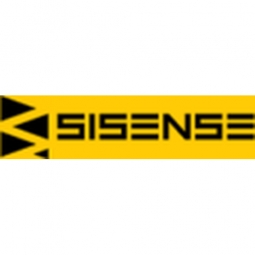
|
Vitality's Transformation into an Enterprise-Level Product with Sisense's Embedded Analytics
Vitality, a company focused on making buildings smart by analyzing IoT data for energy savings and risk mitigation, faced a significant challenge as it grew. The company's original plan involved building basic analytics into its platform. However, as the company expanded, customer demands for analytics quickly outpaced what Vitality could build in-house. The company realized it needed to purchase analytics capabilities to stay relevant to its customers. These capabilities needed to be seamlessly integrated into its proprietary platform, matching the look and feel of its software, and delivering an industry-leading user experience. Additionally, Vitality saw a huge potential for future growth by augmenting its powerful algorithms with industry-leading embedded analytics.
|
|
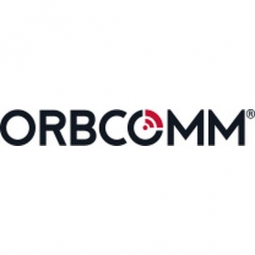
|
Maximizing ROI in Mining Operations with IoT: A Case Study of Los Pelambres Copper Mine
Los Pelambres, a copper mine located in Salamanca, Chile, faced a significant challenge in its operations. The mine, which is the seventh largest producer of copper in the world, relied on 55 Komatsu mining trucks for the transportation of copper. In an effort to maximize asset utilization, the mine adopted a fast refueling system that reduced refueling time from 25 to approximately 5 minutes. However, this initiative led to a series of unexpected issues. The factory-installed fuel sensors ruptured due to the pressure from the fast refueling system. Without a working fuel sensor, drivers had to guess when to refuel and how much fuel to add back into the tank. This led to frequent under or overfilling of the tanks, causing operational delays and increased downtime. The mine needed a solution that could withstand the pressure from the fast refueling system, relay fuel level and truck location data back to a centralized application, and include a user-friendly interface for monitoring.
|
|
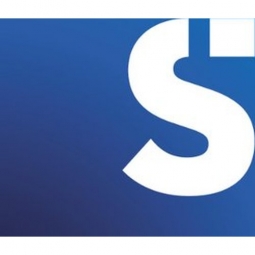
|
4flow: Enhancing Supply Chain Efficiency with Real-Time Data
4flow, a leading global provider of supply chain consulting, software and fourth party logistics (4PL) services, was facing a challenge in managing logistics networks proactively and efficiently due to a lack of real-time visibility. This lack of visibility resulted in increased costs from deviations and exceptions, such as late penalties and dispute management costs, and in worst cases, extended supply chain disruptions. Late identified delays meant the time needed to take preventative measures was lost, potentially leading to late fees and penalties. If shipping status data was not automatically exchanged between supply chain partners, time-consuming manual communication between carriers, customers and transport planners was also required. Additionally, carrier performance was difficult to manage without objective data. As a neutral 4PL that is not fleet-based, 4flow did not have access to real-time transportation data and was looking for a strong partner to provide visibility to its customers.
|
|
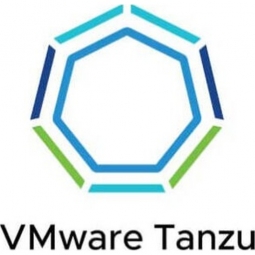
|
Hyundai AutoEver's Transformation into a Global Smart Mobility Company with VMware Tanzu
Hyundai AutoEver, a key player in supporting Hyundai Motor Group’s IT initiatives, was faced with the challenge of modernizing their applications and technology to provide personalized digital experiences for drivers. With over four million Hyundai vehicles connected to the cloud, a number expected to increase annually, the company needed to strengthen their expertise in embedded automotive software to bridge the gap between the car and mobility ecosystems. A specific example of this was their Bluelink® mobile app, a luxurious, connected car service offering various features such as remote start, door lock and unlock, on-demand diagnostics and alerts, destination search, and remote car finder.
|
|
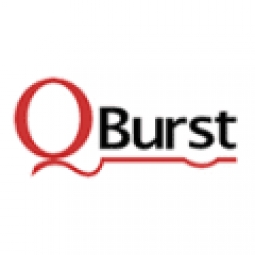
|
Web Portal Development for a Security Solutions Company
The client, a security service provider, required a web portal that could manage different user roles and integrate with Customer Premise Equipment (CPE) to manage various services. The portal was expected to offer service desk functionalities and integrate with third-party systems for implementing SMS functionality. The client's customers are organizations that have one or more CPEs and avail different services from the client. The client's business solution is a combination of hardware and software components providing security services and the ability to manage service configurations. The service subscription and service delivery of all office security service-related reports/analysis is controlled from the client’s cloud infrastructure.
|
|

|
Scaling Third-Party Cyber Risk Management Post-Merger with CyberGRX
A technology company faced a significant challenge after merging with another organization, which resulted in the doubling of their third-party ecosystem. Prior to the merger, the company had an efficient third-party program that included an in-house assessment working in tandem with a GRC tool. However, the merger put a strain on this system as the number of third parties in their ecosystem doubled. The company's team was unable to scale their current program to effectively manage their new vendors due to a lack of increase in human resources. The company was in need of a solution that could seamlessly integrate with and scale their process, enabling them to apply the right level of due diligence across their new and expanded ecosystem efficiently.
|
|

|
Global Connectivity and Single Point-of-Management for Digitalli's IoT Deployment
Digitalli, a Paris-based audiovisual communication company, specializes in creating, designing, and producing point-of-sales films and adverts for luxury retailers. The company faced a significant challenge in monitoring its installed equipment to ensure its proper functioning. Any sudden malfunction could negatively impact the consumer experience, the visual aesthetic of a store, and ultimately, sales and brand image. Regular maintenance checks and fixing screens during unexpected outages proved to be expensive. Digitalli sought an IoT solution with an advanced management platform for remote monitoring of all network assets. However, deploying an IoT solution in a retail environment was not straightforward due to the need for multiple internal approvals and security clearances. Digitalli wanted to implement a cellular connectivity solution to connect its assets independently of its retail partners' systems. However, managing multiple SIM vendors and product inventories, tracking costs across different jurisdictions, and monitoring data consumption posed significant challenges.
|
|
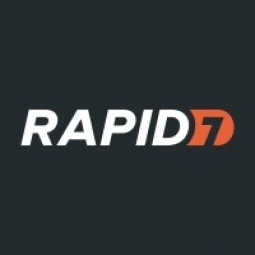
|
Rapid7 Enables Qlik's Expanding Multi-Cloud Security and Compliance Strategy
Qlik, a leading data integration and analytics platform, was facing the challenge of expanding their cloud footprint while ensuring a cohesive, enterprise-level cloud security strategy. The company, which has grown significantly since its inception in 1993, was already using cloud services across various departments, including Research and Development (R&D) and Security teams. However, they recognized the need for holistic guidance to ensure the adequate protection of their cloud resources and data. As Qlik continued to grow as a Software as a Service (SaaS) technology provider, the use of cloud providers like Azure and Google Cloud Platform also expanded. The challenge was to maintain consistent control of their cloud environments and expand their cloud security best practices into these new environments.
|
|
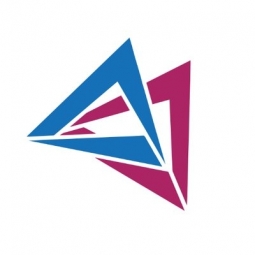
|
Smart Lighting Solutions for Energy-Efficient and Healthier Environment
The customer, a leading American manufacturer of connectivity solutions, wanted to expand their business to the enterprise segment by launching a unique smart modular lighting solution for interconnected commercial spaces such as modern workplaces, data centers, educational institutions, and healthcare facilities. They also needed a solution to lower the energy consumption of their existing IT infrastructure thereby reducing operational costs. The customer was looking for a comprehensive smart lighting solution with faster connectivity, interoperability, and high energy efficiency. The challenge was to develop a solution that could integrate with the existing infrastructure, provide in-depth analytics, and offer a user-friendly interface.
|
|
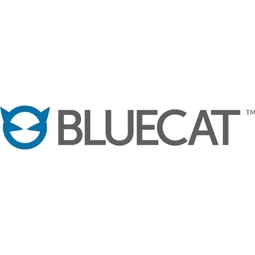
|
Global Hybrid and Multi-Cloud Visibility in the Manufacturing Industry: A Case Study
The multinational manufacturer was grappling with a complex and unmanageable network infrastructure due to the presence of thousands of subscriptions on multiple clouds. The company's network was organized to support innovation across various verticals, but the lack of visibility into the cloud subscriptions posed a significant challenge. The cloud and networking teams needed to manage the allocation of IP addresses and namespaces to avoid conflicts and respond securely to queries across on-premises and the cloud. They also needed to track usage for service health, security, and compliance purposes. However, the cloud service providers (CSPs) were not cooperative in providing the multi-cloud visibility they required.
|
|

|
Sierra Wireless Connectivity Solutions Enable High-Density Video Security
The customer, a leader in security systems for highly secure commercial installations, was looking to leverage advancements in machine learning, artificial intelligence, networking technology, and sensors to develop a comprehensive surveillance system. The system was to be deployed across various sites and required stationary components like surveillance towers and a robust back-end cloud infrastructure. The primary challenge was to ensure secure and reliable high-speed connectivity for the system, which was crucial for real-time data collection and transmission.
|
|
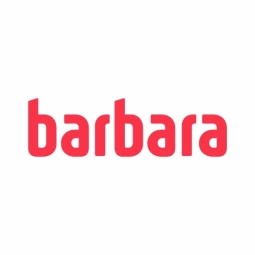
|
Edge Computing in Substations
Cuerva Distribution needed to have real-time data (<1 minute) from the line cells of its substations and fault detectors in order to obtain instant alerts regarding supply quality: surges or drops in voltages or intensity, neutral currents, etc. Traditionally, all these data are processed through SCADA, a rather rigid system which does not allow for custom events and alarms to be configured. Due to software limitations, it took around 15 minutes for the data to transfer from SCADA to a database.
|
|
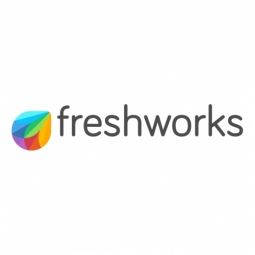
|
Aramex Boosts Agent Productivity by 50% with Freshservice Implementation
Aramex, an international express, mail delivery, and logistics services company based in Dubai, was facing challenges in delivering consistent, quality IT services and support to its employees. As the organization grew, responding to service requests in a timely manner became increasingly difficult due to outdated processes and communication silos. Aramex was using an in-house legacy IT service desk that was rigid, ill-defined, and required constant resources to maintain and upgrade. The on-premise system was not easy to scale and could not keep up with the growing needs of Aramex. The company was in need of a flexible, agile IT service desk that could streamline its workflow and improve ticket resolution time.
|
|

|
Bracknell Forest Council Boosts Self-Service Usage by 76% with Freshservice
Bracknell Forest Council, a local authority in Berkshire, England, was facing several challenges with their legacy ticketing system. The system was heavily reliant on traditional channels such as emails and phone calls, which limited the efficiency of the teams. The system required heavy customizations to meet the council's needs, making it difficult for non-IT teams to use. The council's IT environment was plagued with manual processes and the system was heavily siloed, restricting the flow of information among teams and resulting in longer resolution times. The council was in need of a modern, user-friendly IT service desk that would enable them to serve their customers better. They were looking for a solution that would provide self-service capabilities to reduce agent workload, visibility across teams for better collaboration, and an easy learning curve for non-technical teams.
|
|

|
Alpred SL: Global Expansion of a Local Sports Paper with Google Cloud
Alpred SL, a Spanish information services company, faced the challenge of transforming a traditional print newspaper, Estadio Deportivo, into a sustainable, digital sports media brand. The company aimed to create a free, continuously updated, 100% digital sports news platform for Spanish-speaking sports fans worldwide. However, the existing infrastructure of Estadio Deportivo was entirely on-premise, and its content management system (CMS) was designed for both print and online versions, which was obsolete and no longer fit for Alpred's purposes. The company was dealing with constant setbacks, errors, and outages, which made it difficult to manage. Moreover, the sports world moves fast, and Estadio Deportivo’s services needed to be constantly available and handle considerable traffic peaks, especially on match days.
|
|

|
ARD: Transforming Public Broadcasting with Google Cloud
ARD, the world’s largest public-service broadcaster network, was facing challenges in keeping up with changes in how users consume content. The organization's previous hosted data center infrastructure was 10 years old and had a monolithic architecture, which resulted in a development turnaround cycle of three months. Video content was distributed without being tailored to particular devices. In 2018, ARD decided to change the monolithic infrastructure for its video delivery platform to improve the user experience, regardless of how users were watching or listening. The challenge was to build a new platform that could cover all touchpoints, support a truly digital-first strategy, and improve the user experience on a global scale.
|
|

|
Banco Davivienda: Accelerating Digital Transformation with Google Workspace
Banco Davivienda, Colombia’s third largest bank, was facing a challenge in improving its customer ratings due to its continued reliance on manual processes. Despite having a reputation as a banking innovator and a trusted financial services provider, the bank recognized the need for a digital transformation to enhance customer interaction and drive efficiencies. The bank identified six transformation projects, including a sales performance model, sales digital support, self-learning, digital and effective meetings, digital workflows approval, and project management. However, the bank needed a technology partner to support this transformation and help change the way people worked, drive efficiencies, and improve performance.
|
|
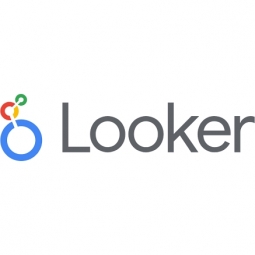
|
AXA Switzerland: Leveraging Google Cloud to Innovate in the Insurance Industry
AXA Switzerland, a leading insurance company in Switzerland, was facing the challenge of keeping up with the rapid changes in customer behavior, regulations, and technology in the insurance industry. The company realized the need to transform its traditional and analog business model to a more innovative and digital one to maintain its market leadership. The company's existing on-premises infrastructure was not flexible enough to allow the level of innovation and speed they desired. Furthermore, AXA Switzerland needed to gain cross-industry insights about future trends and customer preferences to continue providing relevant advice in a fast-changing world. The company also wanted to improve its internal processes by automating labor-intensive and time-consuming tasks and enhance customer experience through data-driven insights.
|
|

|
bolttech: Revolutionizing Insurance with Apigee and Google Cloud
bolttech, an international insurtech business, was launched in 2020 with the aim of building a leading, technology-enabled ecosystem for protection and insurance. The insurance sector has traditionally been slow to embrace trends such as hyperconnectivity, and bolttech saw an opportunity to change this. The company's technology strategy involved enabling both supply side insurance carriers and demand side business partners to connect seamlessly to its exchange. However, bolttech faced challenges in finding an API management solution that could provide a superior integration experience with its partners across Asia, Europe, and the United States. The solution needed to support growth in traffic, promote a thriving developer ecosystem, and provide efficiency benefits from the deeper connection between systems and components.
|
|

|
Booksy: Leveraging IoT to Revolutionize Beauty and Health Service Booking
Booksy, a world-leading appointment management platform, was facing a significant challenge in scaling its infrastructure to match its rapidly growing user base. With its client base doubling every year, Booksy needed a scalable architecture to handle the increasing number of bookings. Initially, Booksy was built using on-premises servers, which led to a series of scaling issues. When extra capacity was required, the team had to wait several weeks before new servers were assembled and online. Maintaining the data centers was a lot of work and took their focus away from coding. Furthermore, they needed to do more coding to meet the demands of scaling up, such as refactoring code for larger architecture. The Booksy application ran on a monolithic architecture, making migration to a more scalable solution a complex task.
|
|
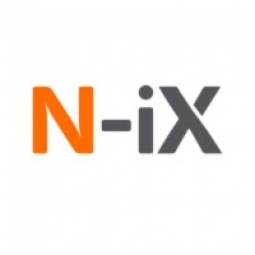
|
Neobank Transformation: Enhancing Compliance and Security
The client, a leading specialist digital challenger bank based in the UK, was faced with the challenge of redesigning and rebuilding their mobile banking application. The goal was to provide a more convenient way for their customers, primarily small businesses, entrepreneurs, and consumers, to interact with their platform. Additionally, they needed to implement Open Banking, a mandatory requirement from the UK financial institution. Prior to this, the client had outsourced the development of its mobile app to other vendors. However, they needed a strong team that would take over the development completely and implement new features to improve the functionality for both the client and its customers.
|
|

|
Revamping Bitlog's Warehouse Management System: A Case Study
Bitlog, a Sweden-based company delivering innovative supply-chain and logistics solutions, was faced with the challenge of extending the functionality of their warehouse management system (WMS). They needed to improve the user experience and develop mobile applications for iOS devices. The task was complex due to the intricate business logic of warehouse management, which required a deep understanding of warehouse workflows, stock control, product movement, picking operations, and space utilization. The WMS comprised over 10 modules with complex logic and user scenarios, necessitating the development of multiple workflows for warehouse operators and managers. The team also had to develop different modules for managers and drivers for the Transportation Management System (TMS) application.
|
|

|
SAP Automation in Banking with RPA and Automation Anywhere
The client, a large bank with over 260 branches, serving more than 2 million customers, 170,000 SMEs, and 600 large corporate companies, was facing challenges with the manual process of testing software and system changes associated with SAP ERP. The bank uses the SAP ERP system and its various components to handle specific business processes associated with their banking activities, such as managing invoices. However, the process of introducing software changes into the system or adjusting the system’s settings involved long and resource-hungry manual testing activities. The client wanted to significantly accelerate the testing process by automating these manual processes.
|
|

|
Streamlining Transfer Pricing with Automated Tax Calculation and Entity Management
The client, a global industry leader in tax services, was facing a significant challenge in managing transfer pricing compliance requirements. The process involved a substantial amount of tax calculations, which were being done manually, resulting in a time-consuming and costly process. The client was seeking a solution to automate these calculations to make them faster and more cost-efficient. Additionally, the client needed a system to monitor transactions between various business units and legal entities more effectively. The transaction rules, methods, and tax calculations were previously kept, applied, and completed manually in Excel, which incurred substantial time and resources.
|
|

|
Cloud Migration and Automation for Cost Optimization in a Global Tech Company
The client, a global provider of managed cloud services, was facing challenges in generating monthly service reports for their clients. The process was not cost-effective due to the extensive manual work involved and the use of a paid third-party tool. The root cause of this issue was the lack of a centralized and unified approach to handle the vast amounts of data received from their equipment. The company’s data was managed on-premises, leading to significant costs and scalability issues. The scattered IT resources also caused problems with data accessibility, leading to inefficient data governance, storage, and organization. This inefficiency was particularly problematic when generating Monthly Service Reviews (MSRs) - equipment performance reports sent to clients every month.
|
|

|
Software Development Partnership with WEINMANN Emergency: Enhancing Medical Technology
WEINMANN Emergency, a Hamburg-based medical technology company, was facing challenges in developing new medical devices. The company needed to expedite the process of bringing new products to the market while ensuring compliance with medical standards and regulations. The primary goal was to speed up the development and release of their MEDUCORE Standard² solution, a portable defibrillator. The company required a technology partner with expertise in embedded Linux software development, the capacity to assemble a strong engineering team quickly, and a cost-effective cooperation model. The challenges included implementing a secure communication protocol with a telemetry server, securely uploading user session data and device logs, fixing multithreaded data access issues, building Wi-Fi network connections, improving Bluetooth printer support, and ensuring compliance with security regulations.
|
|

|
Revamping User Experience for Book2Meet's Hospitality Solution
Book2Meet, the largest online booking platform for meeting spaces across Europe, approached N-iX with the goal of creating an easy-to-use platform for reserving meeting venues. The challenge was to design an intuitive application that simplified the booking process, shortened the user flow, and incorporated all search filters within a single widget, all while adhering to the platform's style guide and preserving its image. The UX/UI team faced the task of placing numerous filters on the page without overloading the design and ensuring that setting search criteria wouldn't be time-consuming. The initial user journey included numerous options spread across three pages, which was cumbersome and time-consuming for users.
|
|

|
Scaling Digital Transformation in Automotive Technology with SaaS Platform
The client, a leading automotive technology company, was facing challenges in standardizing and streamlining the development of products across different departments. The company's complex organizational structure, comprising multiple independent departments, each developing standalone solutions for internal use and customer projects, was leading to redundancy and inefficiency. Some of these applications had similar features, but there was no mechanism to reuse applications with similar functionality. The client needed to build a SaaS platform to address these issues and reduce costs. However, before embarking on this large and costly project, the company needed to validate the product idea, measure its ROI, and mitigate potential risks. They also needed expertise in cloud software development.
|
|

|
Installation of a Com.X2 SIP Gateway Solution for a Dynamic Call Routing at ER24
ER24 wanted transparent voice connectivity independent of whether there was a network failure from their Telco providers. ER24 required SIP based connectivity across fibre as a primary out and inbound solution while maintaining Telkom PRI’s as redundancy should Activate Telecoms’ SIP network be unavailable.
|
|

